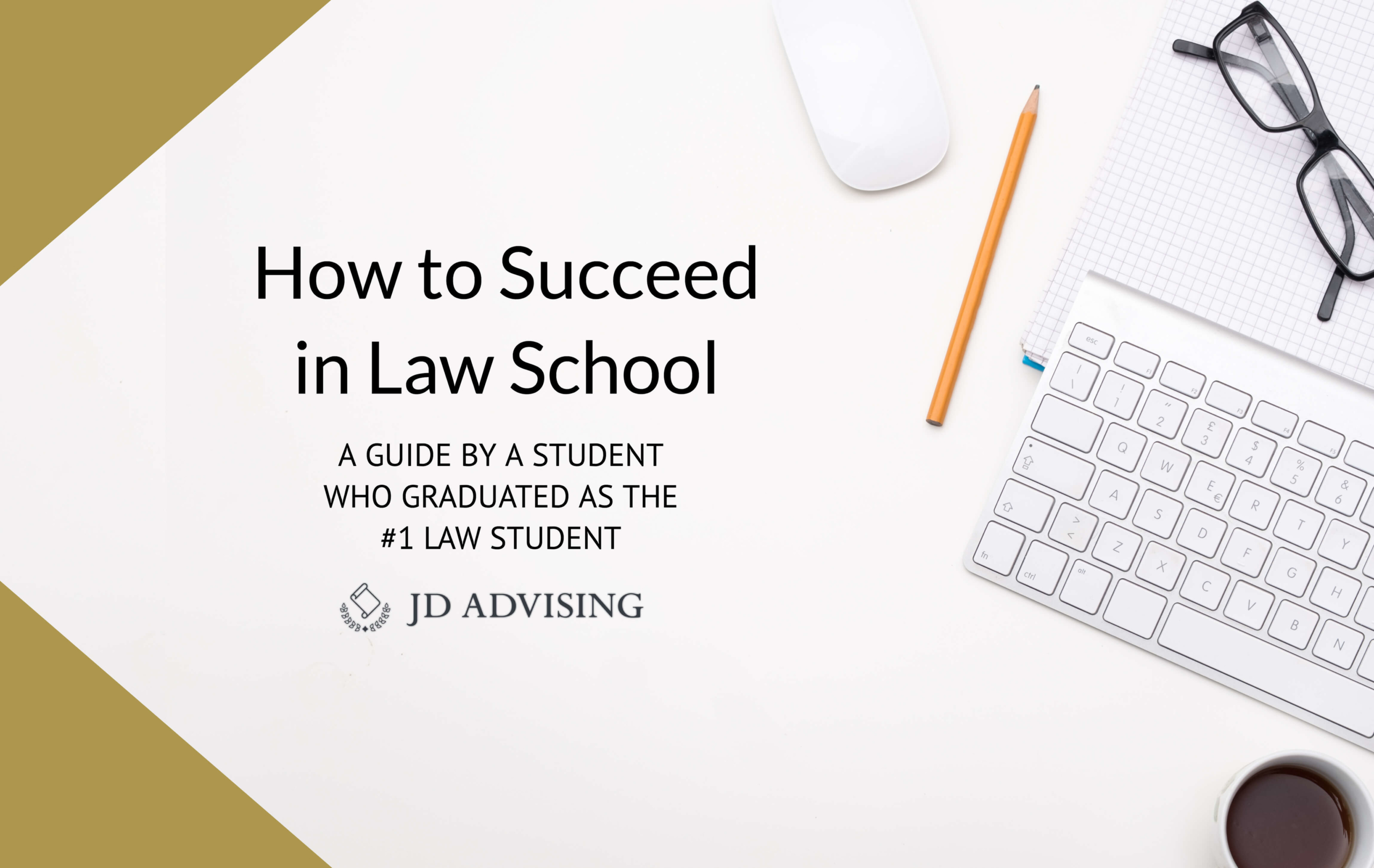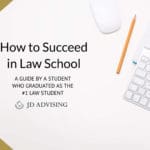How do I answer law school exam questions? (an in-depth guide)
Here, we give you an in-depth guide on how to answer law school exam questions. This is a step-by-step process for approaching law school exams.
Law school exams are very different than exams you may have taken in undergrad. Because they are different from the exams you are used to, you need a novel strategy if you want to answer the law school exam questions successfully and receive high scores on your law school exams. Many students do not know how to best prepare for law school final exams (in part because law schools do not teach students this!). In this post, we break down the process of answering law school exam questions into a few simple steps.
 How to answer law school exam questions
How to answer law school exam questions
Preparation for answering law school exam questions
Make your outlines!
Before you learn how to answer law school exam questions and attempt to answer law school exam questions, it is crucial that you have outlines (that you have made) and that you have familiarized yourself with your outlines well enough so that you feel like you know them. Here we have an in-depth guide to outlining. We also have tips on how to outline using diagrams, and places you can find outlines online if you want to review examples of outlines.
Learn your outlines!
If you have outlines, but are struggling to learn or memorize them, you are not alone. Many students struggle with this aspect of studying. Check out this post for seven fantastic tips on learning your law school outlines, which is outlined previously in this guide!
Why do you need to outline and learn your outlines first? Because the essential tool that you need prior to answering exam questions is knowledge of the law! This is the key tool, or your secret weapon, that will help you work your way through exam questions. After all, exam questions will ask you to apply the law to a fact pattern. You cannot apply the law if you do not even know what the law is! No strategy, tool, or tip will be able to get you a high score on a law school final exam if you do not make an effort to truly know the law.
General format of a law school exam
Your law school exam will generally be a story (called a “fact pattern”). You will be expected to go through the story, sentence by sentence, and spot the issues. For example, you may have a fact pattern like this:
Anna is walking down the street, texting her friend. She is not looking where she is going. A driver, Bob, who is trying to get directions on his phone, does not see Anna and hits her. Anna falls to the ground and breaks her tailbone. Normally, the impact would not cause a broken tailbone but Anna has a brittle bone disease which causes her to get hurt very easily. Anna goes to the doctor later that afternoon. Anna fills out a form that clearly states she is allergic to various medicines. The doctor accidentally gives her medicine that she is allergic to—a medicine that Anna had listed on her form that she was allergic to. Anna has to stay in the hospital for five days to be treated for her allergic reaction. The visit for the broken tailbone cost Anna $20,000. The five-day stay in the hospital cost Anna $50,000. Discuss the issues.
Your job will be to use the IRAC method, discussed below, to identify the issues, state the rules of law, apply them, and then arrive at conclusions for each issue spotted. You can see that the call of the question is open-ended (“Discuss the issues”) and that you are not actually told which issues to discuss. Note that your professor may give you several short fact patterns (like the one above) or may give you longer fact patterns (sometimes one to five pages long).
Step one: learn to answer exam questions using the IRAC method
The IRAC method is a commonly used method for writing law school exam answers. The letters in IRAC stands for the following words:
- I = issue
- R = rule
- A = analysis
- C = conclusion
The IRAC method is formulaic. To use IRAC one essentially fills in the blanks of the following formula for each issue that one spots: “The issue is ___________. The rule is ___________. A court would analyze it as follows: [apply the law to the facts]. In conclusion, ___________ will likely win.”
The IRAC method, in its most basic form, is not the best way to answer exam questions. It is a bit too simplistic and formulaic. However, it is a great start for learning how to answer law school exam questions. Further, as you practice it, (and as we show you below) you will find yourself improving the analysis section significantly in order to write a sophisticated exam answer.
I = issue
It is important that you identify most, if not all, of the issues in your exam fact pattern. Write down the issue. Explicitly say, “The issue is whether . . . .” Note that many times, the fact pattern will not give you any hints as to what the issues are. It will just say “Discuss the issues” or “Discuss.” Thus, it will be up to you to spot all of the issues.
Issue-spotting is important because if you don’t spot the issue, you will not be able to apply the relevant law and analyze it (and this is what you get the most points for!). To become a good issue-spotter, practice answering exam questions and comparing them to model answers. This will help you get an idea of the most commonly tested issues and will help you spot these issues on your final exam.
As an example, in the example fact pattern above, some of the issues are negligence, contributory negligence, foreseeability of medical malpractice, eggshell-skull rule, and joint and several liability. All of these issues should be discussed separately.
R = rule
For each issue that you identify, state the rule of law that governs the issue. Make sure that you state the relevant rules of law. Some students will write down all of the rules of law that they have learned to try to impress the professor. However, you don’t get points for these and you are wasting time writing them all down.
A = analysis
The analysis is the most important part of your exam answer. It is the section where you apply the law to the facts. The key to writing an average IRAC answer and an outstanding A+ answer is to develop the analysis by making lawyerly arguments on behalf of the plaintiff and on behalf of the defendant for each issue that you spot. When you get to the “A” in IRAC, ask yourself: “What would the plaintiff argue?” then ask yourself, “What would the defendant argue?” State who has the better argument. Make creative arguments, and make all of the reasonable arguments you can. This is the most important part of your essay.
When you make arguments (and when you respond) for each side, refer to specific facts in the fact pattern. Arguments can be made using the following strategies:
- Sometimes you will argue that the facts should be interpreted one way or another.
- Sometimes you will argue that the law should be interpreted one way or the other.
- Sometimes you will cite policy reasons for why the case should turn out one way or another.
- Sometimes you will argue that the traditional rule should be applied instead of the model rule (or vice versa) or that the common law rule should be applied instead of the statute (or vice versa), or that the majority rule should be applied instead of the minority rule (or vice versa).
- Sometimes you will argue that the holding in one case should be followed rather than the holding in a different case.
Most of your arguments will be based on classroom discussion. That is, if your professor really emphasized contradicting rulings of two different cases, you would mention that in your argument section. If your professor focused instead on common law rulings vs. statutory law, you may make arguments based on that.
Even if the question says “you are counsel for the defense,” you still have to recognize (and state in your answer) arguments that the plaintiff would make. After all, the best defense lawyer will anticipate arguments by the plaintiff.
This takes your answer out of the simple IRAC format because you are not just applying the law to the facts, instead you are arguing and analyzing from both the plaintiff’s and the defendant’s perspective in a lawyerly manner.
C = conclusion
Last, state which party is more likely to win and explain your reasoning. The conclusion answers the question, “Who has the better legal argument?” The conclusion that you arrive at is not as important as the analysis that you provide.
Do not leave your conclusion too inconclusive (e.g., “It depends on what the court decides. Either could win.”). A conclusion that is inconclusive is not a conclusion at all! However, do not leave your conclusion too decisive either (e.g., “The plaintiff will definitely win” or “The defendant’s argument is baseless.”). It is best not to use extremely strong words or phrases unless they truly are appropriate (and this will happen very rarely for the big issues!). The keywords to use are “probably” or “most likely.” Say something like, “For all the reasons discussed above, the defendant is most likely to win on this issue.”
Step two: practice exam questions
It is not enough to have a good strategy for answering exam questions. You have to also practice that strategy. If you were trying to get good at painting, reading books about painting all day wouldn’t be enough—you would actually have to practice painting! It is the same with answering exam questions. It is not enough to have some skills or strategies. Instead, you have to practice those skills and strategies.
The three primary sources that you should use to practice applying what you know are:
- (1) Exams that your professor has given students in the past (check with your professor)
***This is by far the best resource!*** Make sure to obtain model answers or sample answers if possible. - (2) Problems in supplements—such as Examples and Explanations or Glannon Guides. This is a great resource for practicing all throughout the semester because you can practice analyzing one issue at a time and hone in on your skills.
- (3) Other resources that contain exams with model answers: The best thing to do is Google, for example, “Contracts exam model answer.” You will find updated Contracts exams with model or sample answers. We also have compiled a great resource of practice exams here if you want to save yourself some time Googling it!
After you write your exam answers, always spend a long time comparing your answer to the model answer and grading your answer. This is how you will improve on your exam-writing skills. You will be actively learning the law, giving yourself feedback, identifying your strengths and weaknesses, and find yourself improving over time! If you do this regularly, by the time you get to the final exam, you will know what to expect, and it honestly won’t seem like that difficult or daunting of a task because you will have already done it so many times! I graduated as the #1 law student and got A+’s in over half of my law school classes. Practicing exams ahead of time was a huge reason I was able to achieve that accomplishment.
If you are unsure how to compare your answer to the model answer, we recommend that you start by asking yourself these questions:
Questions to ask when comparing your answer to the model answer
Issue
- Did I spot the same issues that the writer of the model answer spotted?
- Did I miss important issues? Which ones? How will I avoid this in the future?
- Did I include issues that the model answer did not include? If so, are these issues relevant?
Rule
- Did I clearly lay out all the rules and elements of law for each issue?
- Did I discuss laws that weren’t relevant? How can I avoid this in the future?
Analysis
- Did I make arguments on behalf of each party (where applicable)?
- Did I analyze the problem as in-depth as the model answer did?
- Did I spend too much time analyzing an issue that should obviously turn out in one party’s favor?
- Did I know enough law to fully analyze the question or do I need to review my outline more?
Conclusion
- Was my conclusion too vague? Was it too strongly worded?
- Was my conclusion correct (or at least arguably correct)?
Other
- Did I spend too much time restating facts or conclusions?
- Did I answer the exam in the appropriate amount of time?
- What are my strengths?
- How can I capitalize on my strengths and make them even better?
- What do I need to practice more?
Commonly-asked questions on how to answer law school exam questions
What is the most important resource I can consult if I have limited time?
The best resource at your disposal is your professor’s old exams. These show you what the professor likes to test and can help you get used to their format and their exam approach. Make sure that you obtain any model answer or sample answer that goes with the exam. Some professors do not make past exams available for review. Some only offer a couple of prior exams available for review, in which case it is a good idea to seek exams using the other resources mentioned above.
What if my professor includes multiple-choice or short answer questions?
It is becoming more common to include a multiple-choice question section and/or a short answer question section on law school exams. Below we tell you how to answer law school exam questions that contain multiple-choice, short answer, or other nontraditional questions.
Multiple-choice
If your professor includes multiple-choice questions on your exam, it makes sense to get as much practice answering multiple-choice questions as you can before your exam. Do a Google search for questions or, if you have time, order books online with multiple-choice questions. Note: we also have hundreds of law school multiple-choice questions in our JD Advising study aids (which you can sample for free!) Many bar exam review books will have multiple-choice questions that cover the material in first-year law school courses. It is amazing how much you can increase your score through practice!
Make sure that when you begin to practice answering multiple-choice questions that you go through the questions slowly and methodically. Dissect each question. After you read the question, ask yourself what legal issue is being tested and what legal rule you need to know to answer the question. If you do not know the legal rule, look it up in your outline. Lastly, go through the answer choices and explain why one is correct and why the other three are incorrect. If you complete all of the questions slowly and methodically when you practice, you will learn the legal rules better and you will also internalize the best way to approach questions on your exam. You will not fall for tricks!
Closer to your final exam, work on speed. Practice answering several questions each day and make sure you are able to answer them in the time allotted.
If you are looking for a lengthier article about how to improve your score on multiple-choice questions, see this post on how to answer multiple-choice questions: it is geared toward bar exam students but can be helpful to any students taking a multiple-choice exam!
Short answer
If your professor includes short answer questions on his or her exam, get your hands on as many short answer questions as possible. If your professor releases any past exams, focus on these first! Also, consult a supplement. Many supplements have plenty of short answer questions for you to answer. (Our law school study aids contain hundreds of short-answer questions written by top law professors!)
Combination
If your professor gives a combination of questions (some multiple-choice, some essay) spend your time answering both kinds of questions when you practice. Allocate your time based on how your final exam score is calculated. If, say, only 10% of the exam is based on your multiple-choice score, and 90% is based on your essay score, focus primarily on practicing essay questions. If it is the opposite, focus primarily on practicing multiple-choice questions!
Go to the next topic, Where can I find law school practice exams?
Seeking Success in Law School?
- Benefit from personalized one-on-one tutoring by our seasoned law school tutors.
- Explore our NEW and highly acclaimed law school study aids, available for a free trial.





